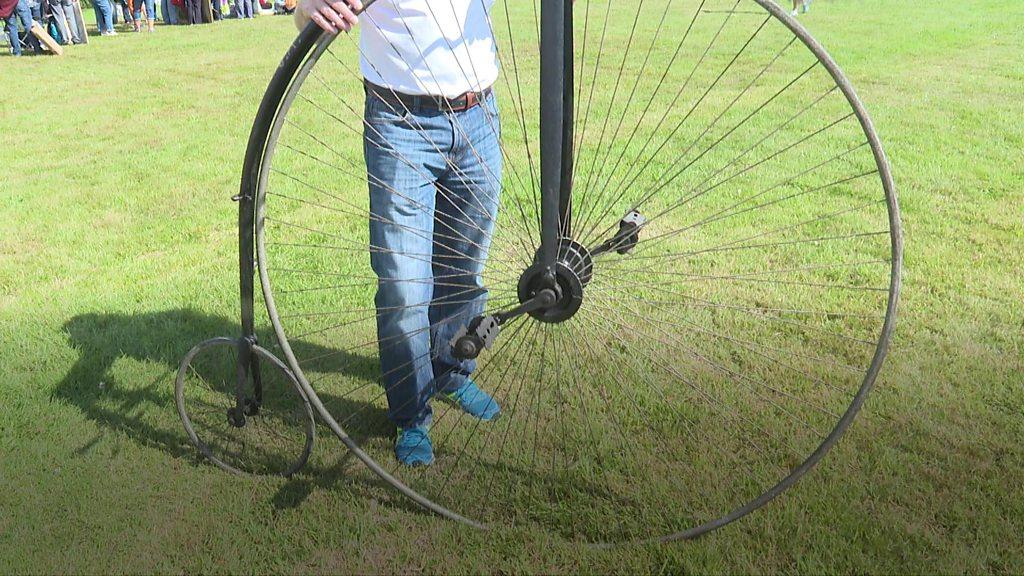Castle Ward: Strangford Lough mansion revitalised by lockdown couple
- Published
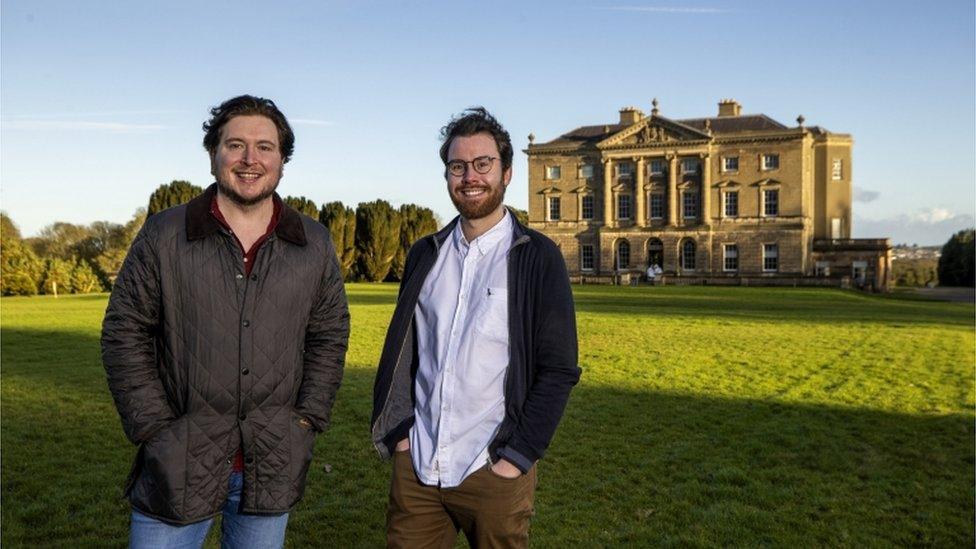
Neil Watt with his partner Kris Reid
Lockdown was an opportunity for many people to get stuck into projects around the home.
But, for one County Down couple the project - and the home - was somewhat out of the ordinary.
Neil Watt and Kris Reid spent most of 2020 in Castle Ward, the famed 18th Century mansion in County Down.
With no visitors allowed for most of the year, they set to work meticulously restoring some of the manor's interior and historic collections.
Neil, the newly-appointed collections and house manager, moved into the top floor of the mansion in March and was preparing to welcome thousands to the National Trust property when coronavirus hit.
With both men experienced conservationists - Neil has a PhD in Irish country houses and Kris is studying for a PhD in heritage - they instead set about giving everything from the chandeliers to the kitchen utensils a new lease of life.
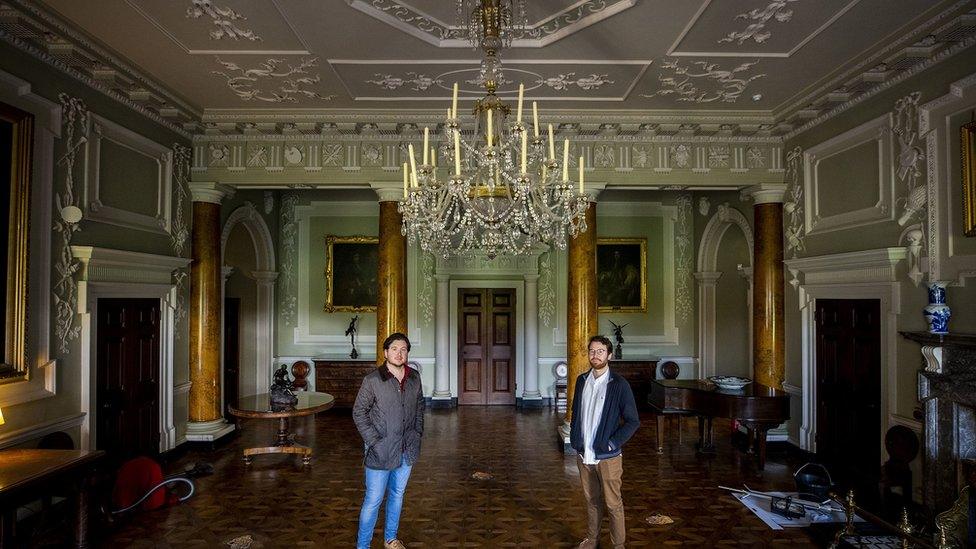
The intricate chandeliers did not escape the attention of the restorers
First there was the installation of a new dehumidifying system to address a centuries-old damp problem.
Then they set about cleaning and cataloguing the house's collection of 2,000 books, most dating from the 18th Century.
Castle Ward also boasts one of the finest sets of cooking pots and pans on the island of Ireland, but over the centuries it had become blackened and tarnished.
The couple polished the 100 pieces one by one. They did the same with many other fixtures and fittings, including all the brass door handles.
The good weather in the early summer allowed them to clean the antique window blinds and beat down the luxury carpets and rugs.
There was also the delicate job of cleaning the crystal Victorian chandeliers.
A new architectural story
Neil, who is originally from County Tyrone, said in any other year the jobs would not have been doable.
"You only have so many hours in the day and if the house is open from 11am until 5pm you can't do all this work in front of the public, because it would detract from their experience."
The tasks were not all practical. Neil also found time to reset a narrative on the the manor's mix of architectural styles - one front Classical, the other half Gothic.
The mix of styles - which has led it to be described as a "Frankenstein house" - has long been explained as being due to a row between the then Lord and Lady Bangor, neither of which were willing to compromise on their design preference.
But that narrative never sat well with the new house manager, who said "nothing so trivial could have created this house".
Instead, he said, a tour of the house will celebrate the split, where the contrast is a deliberate fusion of the Classical style - so fashionable in the 18th Century - with a Gothic element thrown in to acknowledge the family's storied history.
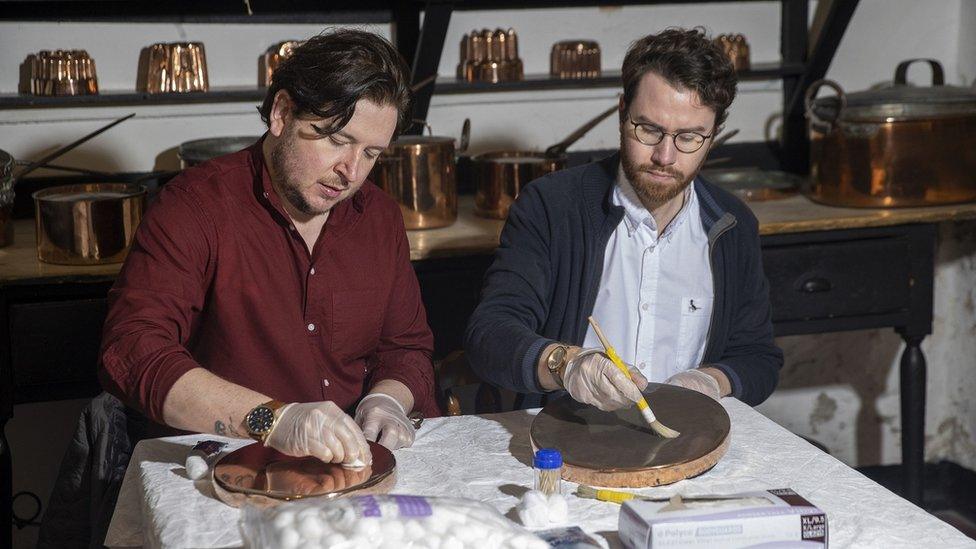
Castle Ward's collection of pots and pans is considered one of the finest on the island - all 100 pieces were freshly polished and cleaned
"One good thing to come out of lockdown is that we've reimagined ourselves, we are not a Frankenstein's monster, we are a sublime piece of architecture," he said.
When restrictions allowed, Neil and Kris were helped by National Trust colleagues and a small band of volunteers from the local area.
Castle Ward's house steward, who was shielding in another property on the estate, also provided organisational support remotely.
"The people of Strangford are wonderful, they really are," Neil said.
"There's just such a lovely spirit here. There really is. I mean if you could bottle it you would sell it."
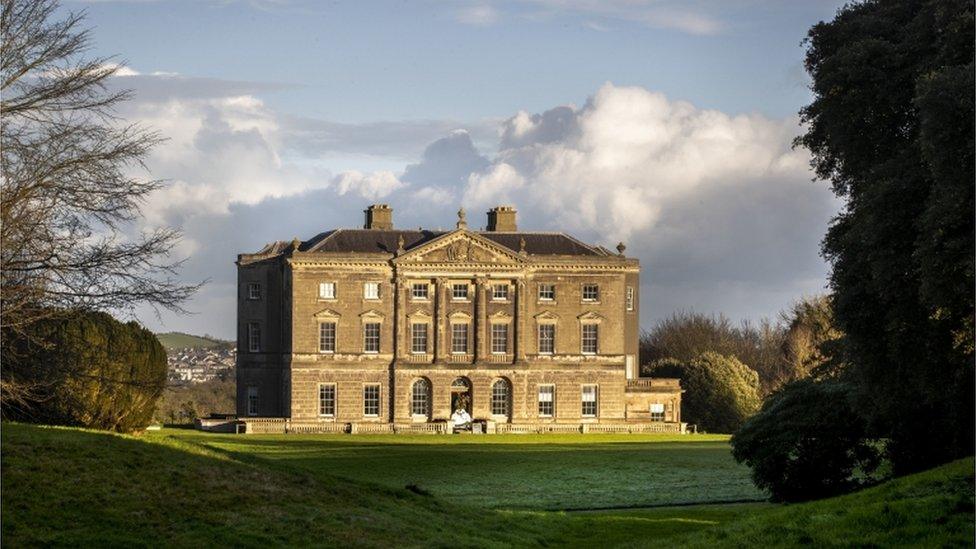
Castle Ward is located on the shores of Strangford Lough
Castle Ward was able to open briefly to the public in the late summer, with tight restrictions in place, but it was not long before the doors had to close again.
Neil said he hopes all the hard work will pay off when the house can finally welcome the public again.
In the meantime, he and Kris will continue to take in their remarkable surroundings.
"Something that we both love living here is the view, because from our sitting room window we can see the town of Portaferry across the lough.
"And that's actually one reason why we haven't felt lonely, because even when we were in full lockdown, we could always see the twinkling lights of Portaferry."
Related topics
- Published10 September 2020
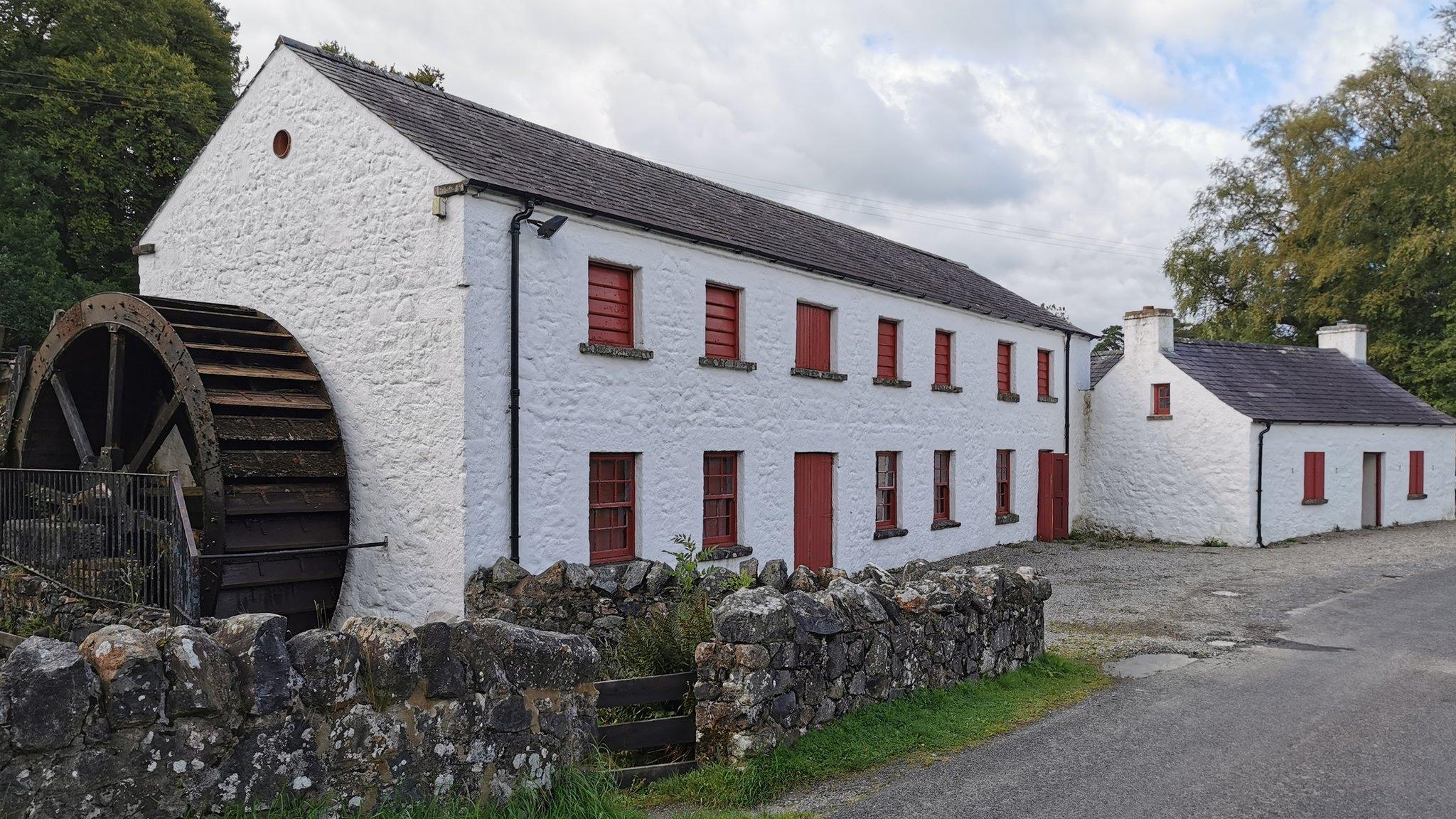
- Published17 April 2012
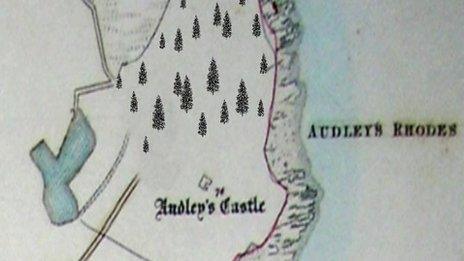
- Published27 July 2019
